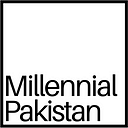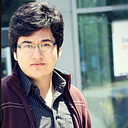Sehat Kahani CEO Sara Khurram Has Some Advice For Startup Founders
From medical school to running Pakistan’s largest telehealth company, Sara reflects back while she looks forward
Follow Us on Twitter | Like Us on Facebook
Dr. Sara Saeed Khurram is the the CEO of Sehat Kahani and was a co-founder of DoctHERs, an award winning health-tech startup. Based out of Karachi, Sara holds an MBBS from DOW University and is a regional Acumen fellow.
Under her leadership Sehat Kahani has emerged as Pakistan’s largest telehealth company, impacting thousands of lives through providing healthcare to Pakistan’s most rural communities.
Sara talked to Editor millennial.pk Shahrukh Wani about her experiences and advise she has for young entrepreneurs.
Shahrukh: Tell us a bit about Sehat Kahani and the rational behind it.
Sara: Pakistan produces 170,000 doctors every year, interestingly nearly 50% (78,037) of this entire workforce of 160,000 consists of female doctors. However, on 23% of female doctors ever register after graduation. They fall in the hands of various socio- cultural barriers that makes it very prestigious of women in Pakistan to obtain a medical degree but that same culture forbids or looks down upon females to work after marriages or having children as for the majority of Pakistan the main role of a female is still in the house taking care of her husband and children tending to their every need.
A female doctor who chooses to work after marriage faces a lack of support system for their children
A female doctor who chooses to work after marriage faces a lack of support system for their children or lack of sharing of responsibilities when it comes to household chores and majority succumb to the pressure giving up their careers.
My story resonates with these female doctors- I was a graduate of one of the finest medical universities in Pakistan, youngest of 3 children, belonging to a traditional middle-class family where girls were wed by the age of 23 and so I was too- After one year of my marriage, I conceived my daughter and I broke the news to my institution I was quietly but firmly asked to quit as my institution did not have policy on how female doctors can continue their degree even after having children in the field of radiology.
It was then that I felt the pain of a woman who gives 23 years of her life living a dream, a dream to provide service to those in need, who learns and spends the key years of her life giving exams and practicing in hospital wards, giving up on her sleep that she has to choose between her career and her family.
It was in one of those moments of extreme clarity when I realized that my purpose in life was to find a path to serve the marginalized and these doctors in a way that not only empowered me as a female but also millions of females out there who need a helping hand — a hand which can guide them and allow them to fully avail what is a basic right. Thus starts the journey of Sehat Kahani which in Urdu means the “story of health.”
A health-tech social enterprise-Sehat Kahani aims to empower the entire value-chain of female healthcare providers to leverage ICT to deliver leading edge healthcare in underserved, untapped communities.
We target low-income communities in Pakistan lacking access to a qualified female doctor, recruit front line female providers (either midwife, lady health workers, visitors) and train them to become micro entrepreneurs in their community through enhanced capacity and comprehensive training skills provided through the Sehat Kahani Platform. These front line providers then connect to home base female doctors via a laptop or a tablet using video conferencing, transmission of still images, e-health including patient portals, remote monitoring of vital signs, continuing medical education, consumer-focused wireless applications and early referrals.
In February 2017 “Sehat Kahani” acquired all of the doctHERs’ clinical operations, assets, team, and partnerships, which constitutes an acquisition of operations with a proven track record of 2 years.
Working in these communities, we have impacted 250,000 lives indirectly over the last 2 years
Sehat Kahani now operates the entire portfolio of clinics formerly operated by doctHERs constituting 9 clinics in Sindh, Punjab and KPK under its banner which has served to 3 more than-than 30,000 direct customers and 250,000 indirect lives in their tenures of the last 2 years, while continuing to grow and expand these operations and their reach throughout Pakistan.
Shahrukh: What was the motivation of launching something of your own in comparison to getting a conventional career path?
I have always been a believer in dreams. For some, it comes easy to achieve their dreams, for others destiny and luck pushes you towards a new journey in life. Trained to be a Clinician, I never imagined that I will be running my own enterprise today.
Doctors spend half of their total life time- studying to be a clinician. Its hard work, yet due to a very disturbing yet widely accepted cultural barrier “doctor Bahu” (doctor bride) deprives them of securing their basic right to work and serve the country. I, along with all Pakistani female doctors, should have a right to make a choice for themselves.
I feel privileged to have this opportunity to fulfil the oath I took the day I graduated. Every time a female walk inside the clinic, avails quality health care, I feel like my purpose in life being fulfilled. It brings me immense pleasure to know that even though I am making a small tent today in the health care ecosystem of Pakistan, I am still doing my bit.
Every patient especially a female provides us an opportunity to reach out and impact atleast 5 more lives in their immediate or extended family. It automatically results in a roll over effect which allows us to recruit more doctors and front line providers in our network. This feeling of creating change is what makes me going every day.
Whenever a patient gets treated, a new nurse or a doctor is recruited into our network, I get inspired to work harder and better!
Shahrukh: What were the main challenges you faced in launching a startup?
There were many challenges in the journey- but for me- the challenge is an opportunity to find solutions. Hence at SK- we deploy multiple mitigation strategies to eliminate the risks.
Shahrukh: Can you reflect on the break up of DoctHERs?
Sara: It was as the result of having different priorities and visions. It was amicably agreed and settled between all three founders that this would be the best way to allow both visions to thrive.
Shahrukh: What would be advise to people who want to launch their startup? Reflect on their experiences.
Sara: (We turned her advise into a pyramid)
Shahrukh: Where do you see Pakistan’s startup ecosystem heading towards? Considering an increase in players in the market.
Sara: Pakistani start ecosystem is new but it is slowly and gradually making its ground. The influx of incubators and accelerators at the public, as well as private level, will play a key role cultivating more investor — ready startups. Opportunities for seed funding as still limited that hinders the growth and expansion of many interesting ideas from a pilot stage.
Entrepreneurs give up quickly due to lack of financial resources and their own personal responsibilities. Increased avenues of angel and VC funding would help tremendously. There is still a dire need for social impact investors to show interest in Pakistan and take a much-needed risk to help expand the social enterprise ecosystem. Tax laws and company registration processes should be simplified. I believe in the next 2 to 3 years Pakistan will become the hub of innovative and sustainable ideas help the economy and the country to grow.
Shahrukh: Where do you see Sehat Kahani in 5 years from now?
Sara: By 2020, we plan to establish 50 E-Hubs and 100 E-Spokes across Pakistan. The plan is to induct 500 community health workers and a network of 2000 at home female physicians. Sehat Kahani aims to provide and an average of approx. 500,000 patient consultations per year. This would result in a cumulative impact of approx. 8.1 million lives through all the services.
The challenge to expansion is mainly outlining funding and well as collaborators in the ecosystem that can help us reach our vision, efficiently. We are heavily focusing on continuous iterations in the business model that can help us reach sustainability. Pivoting and continuously learning is the only way to succeed.
Liaison with organizations such as Unilever, GSK, BISP, HCP group, Medibank, Tech Valley Abbottabad, MNCH, Spring, Elaj Trust, Zong, Momentum, Engro Foods, Engro Polymers Help us in bringing a behavioral change via preventive health drives within these communities. This will lead to maximization of patients which will help us expand and create a continuous loop in which these clinics can be linked to tertiary care hospitals in real time along with laboratory services, diagnostics and financial inclusion.
Will help us expand and create a continuous loop in which these clinics can be linked to tertiary care hospitals in real time along with laboratory services, diagnostics and financial inclusion. The main challenge and opportunity are to create an integrated system of health care in remote locations of Pakistan.

